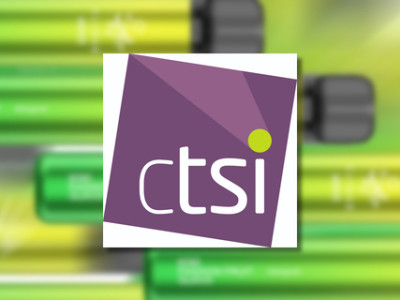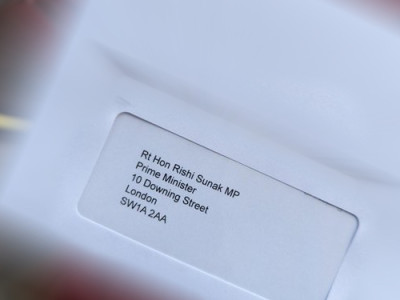“Additionally,” the New Nicotine Alliance says, “on 11 February, the Local Government Association proposed adding vaping products to the tobacco display ban and imposing plain packaging while Action on Smoking and Health (ASH) suggested a tax of £4 per disposable vape to make them more expensive than refillable devices in order to deter youth uptake.
“We question whether there is a better way of dealing with the problems that single use devices pose, as some of the measures proposed will almost certainly be damaging to public health.”
The charity says that concern about youth vaping is understandable, “but it is important to remember that the latest ASH survey highlights that only 0.5% of 11- to 17-year-olds who regularly vape were not former smokers.
“In an ideal world, those under 18 would neither vape nor smoke but we need to consider that some will go straight to vaping, bypassing smoking. Would we really prefer them to have a few months or years smoking before they switch to vaping?
“It also needs to be noted that smoking is concentrated more in groups who have mental health issues and use Child and Adolescent Mental Health Services (CAMHS), young people in Looked-After Children’s services, and those who have been caught up in the criminal justice system.
“Even young people who have had more stress than normal because of COVID, missing school, increased social isolation and now the cost-of-living crisis causing distress in their family, might be turning to vaping to manage their stress rather than doing something worse – self-harm, for example.”
The New Nicotine Alliance believes that this should be kept in perspective.
“14% of children drink alcohol weekly, 9% of kids take drugs monthly and 2% of 11–15-year-olds and 5% of 15 year olds were regular smokers, according to ASH in 2019. ASH also points to the fact that ‘most youth vaping is experimental and most young people who vape have already tried smoking, which is far more harmful’.”
The charity continues: “It is clear that single use vape devices are popular among young people. But it seems to have been forgotten that 25 years ago the same demographic would have been initiating their nicotine use from smoking instead of vaping. We are seeing a generational shift of nicotine use from burning tobacco to using a far safer delivery device and if, as they will, adolescents are to experiment with anything, is it not far better that it be vaping than combustible cigarettes?”
The New Nicotine Alliance continues: “When it comes to adult use, the more forward-looking stop smoking services regularly recommend smokers opt for a single use vape both as a cost-efficient entry-level product to help them quit, and for the purpose of trying out different flavours before opting for something more permanent. Banning the devices would close off this option for adult smokers seeking to quit. It would also affect older would-be quitters and those with disabilities, who say they find disposables easier to manage, without the added complication of filling a tank and changing coils.
“Those who have already successfully quit using single use products would see their exit from smoking closed off and could relapse to combustible tobacco. Considering that smoking is predominantly prevalent amongst lower socio-economic groups, doubling the price of the products would have a similar effect; illicit tobacco would suddenly become attractive again from an economic point of view.
“It is fanciful that removing single use vaping products from the market will naturally lead to adult users buying refillable alternatives instead” – New Nicotine Alliance
“It is fanciful that removing single use vaping products from the market will naturally lead to adult users buying refillable alternatives instead. The reason so-called disposables are so popular is precisely the simplicity and lack of complication required to use them. Restrictions or an outright ban will result in many consumers giving up on vaping entirely and reverting to smoking. Considering the vast difference in risk between smoking and vaping, it would not take many to choose that path to result in a counterproductive result for public health.”
The New Nicotine Alliance says the proposals need to be weighed against alternative solutions which could alleviate some of the perceived problem and would be more amenable to helping people switch.
“For example, zero rating VAT on refillable devices but not on disposables could be a nudge to better choices of device. A deposit scheme for single use devices and educational materials would encourage users to return them to be suitably recycled. If the goal is to make disposables less affordable to adolescents, raising the arbitrary EU-imposed tank size in single use vapes from 2ml to 10ml would make them more expensive than refillables. This would mirror the ban on sales of ten packs of cigarettes which was supported by public health groups to set costs of smoking beyond the budget of minors.
“We need to reflect on the damage that bans and restrictions can cause to public health and consider other avenues first. Nicotine has been enjoyed for thousands of years and this will continue no matter how much people want to stop others using it. The best we can do is to ensure that the public consume it in the least harmful ways.
“The UK is quite rightly lauded for its world-leading policy of guiding smokers towards lower-risk nicotine alternatives such as e-cigarettes. The government-commissioned independent tobacco review last year, led by Javed Khan OBE, recommitted to this by recommending that government ‘embrace the promotion of vaping as an effective tool to help people to quit smoking tobacco’ and identifying that ‘the alternative is far worse’.”
The charity urges policymakers “to consider the damage that bans and restrictions on problematic products will have.
“It may make for a virtuous feeling for those who feel that ‘something must be done’ about single use vapes, but that is not the same as doing the right thing for public health.”
Dave Cross
Journalist at POTVDave is a freelance writer; with articles on music, motorbikes, football, pop-science, vaping and tobacco harm reduction in Sounds, Melody Maker, UBG, AWoL, Bike, When Saturday Comes, Vape News Magazine, and syndicated across the Johnston Press group. He was published in an anthology of “Greatest Football Writing”, but still believes this was a mistake. Dave contributes sketches to comedy shows and used to co-host a radio sketch show. He’s worked with numerous vape companies to develop content for their websites.
Join the discussion
Trading Standards Welcomes Clarity
The Chartered Trading Standards Institute says it welcomes the “clarity and action from government to tackle youth vaping” with the plan to ban disposable vapes and related announcements
UKVIA Writes To Sunak
The UKVIA has sent a letter to Prime Minister Rishi Sunak to 'express profound dismay and disappointment' that the government has decided to proceed with a ban on disposable vapes
FOI Shows Disposables Ban Folly
389 Freedom of Information requests made by leading online retailer Vape Club and one by the BBC demonstrate the extent to which a ban on disposable vapes is a complete act of folly
ASH UK’s Coordinated Comment
Action on Smoking and Health has coordinated a series of responses to the Governments proposals to include interested parties












